You can delay the update on the scroll event by using a so-called debouncing, or, delaying the update until a timeout occur using a timer that is reset every time an event is received:
Example
There is no code shown so this is just a general approach. Implement as needed:
var timerID = null; // for the timer. must be in parent or global scope
window.addEventListener("scroll", function() {
clearTimeout(timerID); // clear current running timer (none is ok!)
timerID = setTimeout(update, 150); // set new timer, here with 150ms timeout
});
function update() {
// do the update here
}
- Every time the page is scrolled, an scroll event is broadcast and received in the handler.
- If the timer is still running it will be reset, a new timer invoked.
- If the scroll event takes more than 150ms (in this case, tweak as needed), the actual update is performed.
This will allow the browser to broadcast a bunch of events without spawning a bunch of updates. In your case the update will affect the DOM tree and paint so it is best to reduce it to an absolute minimum.
